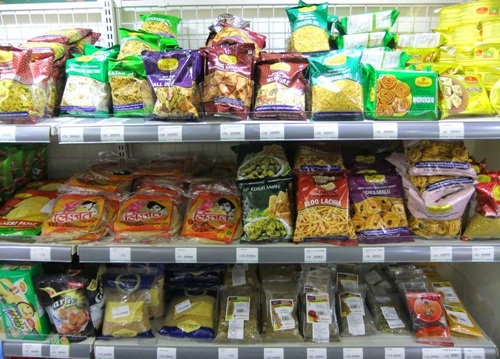In a first study of its kind for India, New Delhi-based research and advocacy body Centre for Science and Environment (CSE) has exposed large-scale illegal presence and sale of genetically modified (GM) processed foods in the country.
Without the approval of the Food Safety and Standards Authority of India (FSSAI), production, sale and import of these foods is banned in the country.
CSE’s Pollution Monitoring Laboratory (PML), which conducted a study, tested 65 food products available in Indian markets; of these, 32 per cent were found to be GM-positive. The products were bought randomly from retail outlets in Delhi-NCR, Punjab and Gujarat.
The products which were found to be GM-positive include infant food, edible oil and packaged food snacks. Most of these are imported from the US, Canada, the Netherlands, Thailand, and the UAE. These products were produced from or contain soya, cotton seed, corn or rapeseed (canola), which are known GM crops of the world.
Both imported (35 products) and domestically produced (30 products) samples were tested and it was found that imported ones fared worse — 80 per cent of the products which were found to be GM-positive, were imported.
The GM-positive products include infant food, edible oil and packaged food snacks. Most of these were imported from the US, Canada, the Netherlands, Thailand and the UAE.
According to the CSE, these were produced from, or contain, soya, cotton seed, corn or rapeseed (canola), which are known GM crops of the world.
“Our government says it has not allowed the import of GM food products,” said Sunita Narain, CSE director. “Then how is this happening? We have found that laws are not the problem – the regulatory agencies are.”
According to Chandra Bhushan, deputy director general, CSE, it decided to do a reality check by testing processed foods. “We were shocked to know the scale in which GM foods have penetrated the Indian market. The regulatory authorities are to blame here – the FSSAI has not allowed any GM food on paper, but has failed to curb its illegal sales.”
Narain pointed out that GM products, especially food, raise a crucial question of safety. “The jury is still out on this,” says Narain. This is because GM food involves taking genes (DNA) from different organisms and inserting them in food crops. There is a concern that this ‘foreign’ DNA can lead to risks such as toxicity, allergic reactions, and nutritional and unintended impacts.



















